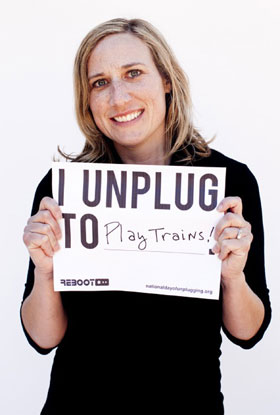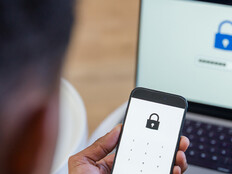Should We All Go Tech-Free for 24 Hours?
My fifth-grade son uses Quizlet, Khan Academy, Prezi and other online tools throughout the day at school. When he gets home, he works on his homework assignments in Google Docs and studies online, doing math problems, taking quizzes and engaging in academic competitions with his friends. When the work is done, he craves more technology — online and tablet games or television shows, for example.
His affinity for “screen time” concerns me, and I’m not shy about vocalizing those concerns to him. I would prefer that he play outside or do something creative, such as build with LEGO blocks or read a book.
But adults often talk about setting technology use limits for their children without really examining their own tech habits. The reality is, I’m on my digital devices all day at work — emailing, texting, posting to Facebook. All too often, I sneak peeks at my smartphone after picking up the kids from school or find myself saying “Just a minute” or “Uh-huh” in response to something they’ve said (rather than really listening) so I can check a text or send a quick email.

Photo: Tanya Schevitz
"Let technology help you accomplish your goals, but don’t let it disconnect you from the friends and family right in front of you." — Tanya Schevitz
And that’s why I look forward to the National Day of Unplugging (NDU), now in its fifth year. This 24-hour “tech timeout” — which begins at sundown on the first Friday of March and concludes at sundown the next day (that’s March 7–8 this year) — reminds me to step away from technology every once in awhile and refocus on other things that make life rewarding.
Taking a Break, Not Breaking Up
Scaling back our reliance on technology isn’t easy. It’s a daily struggle to find time to unplug together and focus on the people and activities that give meaning to our lives.
The NDU movement is designed to help “hyperconnected people embrace the ancient ritual of a day of rest,” but it isn’t anti-technology. It recognizes the value and importance of technology in today’s world. But it also encourages responsible use, advising people to be more mindful of how and when they use technology — and whether those uses are helpful or harmful.
In an educational setting, for example, technology can be a difference maker. This is the first year that my 10-year-old has had computers in his classroom, for example, and I’m thrilled to see how that access engages him in learning in new and powerful ways.
My preschool-age son, meanwhile, loves that I check the daily email update from his teachers and then ask him specific questions about what he did in class that day. Having access to my work email and being reachable by phone anytime, anywhere gives me the freedom to be more present in my children’s lives — something I would never sacrifice.
My challenge to you is to find a balance. Let technology help you accomplish your goals, but don’t let it disconnect you from the friends and family right in front of you. There’s value in an occasional digital detox. Give it a try — and then try it again.








